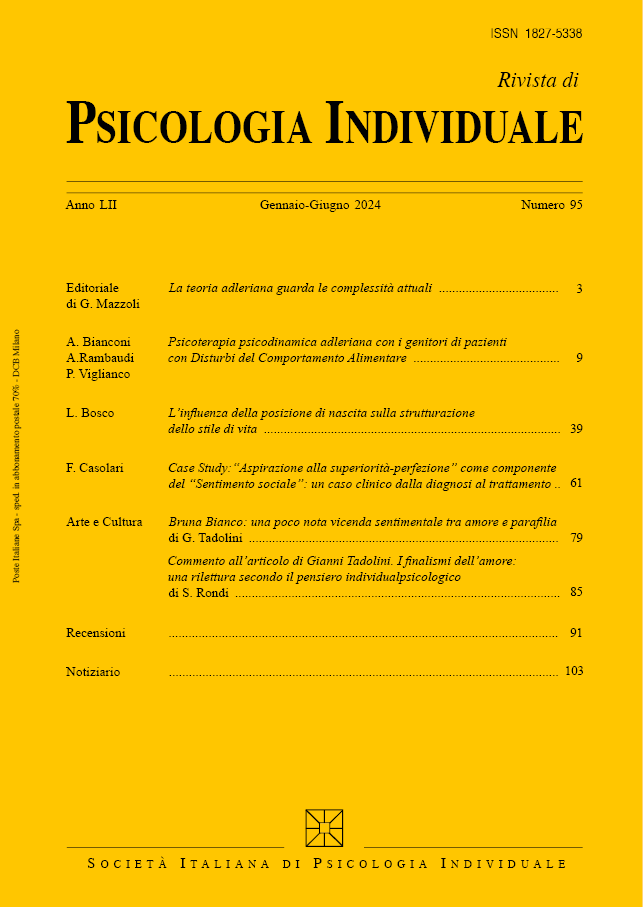The social in us: I, Creon, devil and saint
Keywords:
antigone, unconscious, intuitive intelligence, morality, moralism, narcissism, community spirit, feelings of inferiority, will to powerAbstract
The structure of the individual psyche repeats, either openly or covertly, that of the psyche of all humanity, just as small electronic calculators have the same structure as huge ones. Each of us, in certain circumstances, could therefore commit even the worst atrocities perpetrated by humanity throughout its history. After presenting the contents of Sophocles' Antigone, the author analyzes its characters: Creon's moralism is the result of his will to power and his narcissism; Ismene is inhibited by feelings of inferiority, while Antigone is driven by social sentiment, which, in Haemon, overcomes moralism, whereas Tiresias represents uncritical intuitive intelligence. Social sentiment, an innate affective-emotional component, can be considered the generator of morality, which thus becomes its codification and organization. The will to power, narcissism, and their product, moralism, can be hidden in each of us, just as Antigone's beautiful, pure, and heroic revolutionary morality can grow out of the innate community sentiment in each of us






